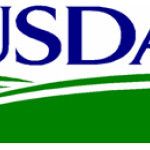- 行业: Government
- Number of terms: 41534
- Number of blossaries: 0
- Company Profile:
The name of a number of degenerative brain diseases that infect humans and animals. For example, bovine spongiform encephalopathy (BSE) infects cattle; scrapie infects sheep and goats; Creutzfeldt-Jacob disease (CJD) infects humans.
Industry:Agriculture
Property rights that may not be used on the land from which they were derived; usually they are sold from areas where uses are restricted, such as active agricultural areas, to receiving or growth areas where development is being encouraged.
Industry:Agriculture
The TPC is the senior U.S. Government interagency trade committee established to provide broad guidance on trade issues. It is chaired by the U.S. Trade Representative (USTR) and is comprised of other cabinet officers, including the Secretary of Agriculture. The Trade Policy Review Group (TPRG) which reports to the TPC is chaired by the Deputy USTR and is comprised of sub-cabinet representatives, including the Under Secretary of Agriculture for Farm Services and Foreign Agriculture. The Trade Policy Staff Committee, the level at which position papers are initiated, is chaired by a Deputy Assistant USTR and has representation from other cabinet departments including USDA.
Industry:Agriculture
A term which describes the complete or partial elimination of government policies or subsidies that adversely affect trade. The removal of trade-distorting policies may be done by one country (unilaterally) or by many (multilaterally).
Industry:Agriculture
P.L. 98-573 (October 30, 1984) clarified the conditions under which unfair trade cases under Section 301 of the Trade Act of 1974 can be pursued. It also provided bilateral trade negotiating authority for the U.S.-Israel Free Trade Agreement and the U.S.-Canada Free Trade Agreement, and set out procedures to be followed for congressional approval of future bilateral free trade agreements.
Industry:Agriculture
P.L. 96-39 (July 26, 1979) provided the implementing legislation for the Tokyo Round of multilateral trade agreements in such areas as customs valuation, standards, subsidies, and government procurement.
Industry:Agriculture
Assistance provided by the Departments of Labor and Commerce to workers and firms that are adversely affected by increased imports. The Labor Department administers a program offering certified workers cash benefits for direct trade readjustment allowances and service benefits that include allocations for job search, relocation, and training. The Department of Commerce sponsors programs that provide technical services to certified firms designed to restore the economic viability of U.S. industries adversely affected by international import competition. This assistance is authorized by subchapter II of the Trade Act of 1974. The Act was amended most recently in 1993, when "transitional" assistance was approved for workers affected by increased imports from Canada or Mexico or by shifts of U.S. production to those countries as a result of the North American Free Trade Agreement (NAFTA). Authority to extend trade adjustment assistance expires on June 30, 1999, but funds are appropriated to cover all of FY1999.
Industry:Agriculture
P.L. 93-618 provided the President with tariff and nontariff trade barrier negotiating authority for the Tokyo Round of multilateral trade negotiations. It also gave the President broad authority to counteract injurious and unfair foreign trade practices. Section 201 of the Act requires the International Trade Commission to investigate petitions filed by domestic industries or workers claiming injury or threat of injury due to expanding imports. Investigations must be completed within 6 months. If such injury is found, restrictive measures may be implemented. Action under Section 201 is allowed under the GATT escape clause, GATT Article XIX. Section 301 was designed to eliminate unfair foreign trade practices that adversely affect U.S. trade and investment in both goods and services. Under Section 301, the President must determine whether the alleged practices are unjustifiable, unreasonable, or discriminatory and burden or restrict U.S. commerce. If the President determines that action is necessary, the law directs that all appropriate and feasible action within the President’s power should be taken to secure the elimination of the practice.
Industry:Agriculture
P.L. 94-469 (October 11, 1976) authorizes the Environmental Protection Agency to regulate toxic substances (any chemical that may present a risk of unreasonable harm to man or the environment). By definition, however, the Act excludes from EPA regulation under TSCA certain substances, including pesticides (as defined by and regulated under the Federal Insecticide, Fungicide, and Rodenticide Act), tobacco or tobacco products, and any food or food additive (as defined by and regulated under the Poultry Products Inspection Act, the Federal Meat Inspection Act, the Egg Products Inspection Act, or the Federal Food, Drug, and Cosmetic Act).
Industry:Agriculture
The amount of pesticide residue allowed by regulation to remain in or on a food sold in interstate commerce. Whenever a pesticide is registered for use on a food or a feed crop, a tolerance (or exemption from the tolerance requirement) must be established. The Environmental Protection Agency establishes the tolerance levels, which are enforced by the Food and Drug Administration and USDA.
Industry:Agriculture
